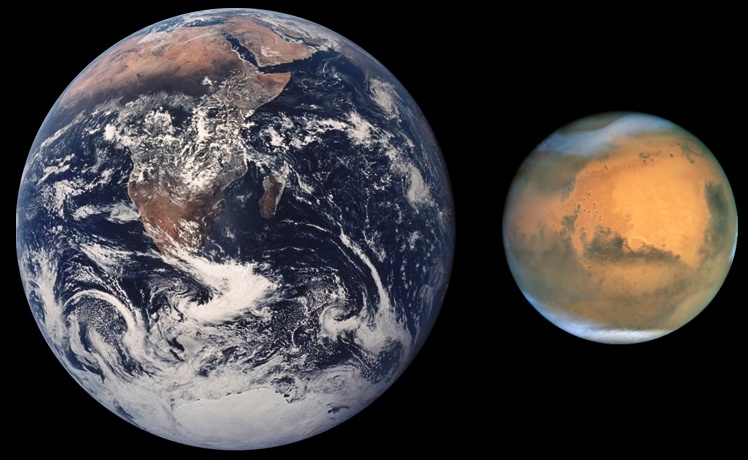Original life came to Earth from Mars on meteorites


Life began on Earth after meteorites from Mars slammed into the planet and coaxed biological material out of moribund primordial soup.
So says Prof. Steven Brenner as reported by the BBC at the Goldschmidt Conference, a geochemical gathering in Florence, Italy.
The meteorites carried two elements that enabled RNA (ribonucleic acid) - vital for life - to spring forward, according to Brenner, from the Westheimer Institute of Science and Technology in Gainseville, Fla.
The two elements, boron and molybdenum, had not been sufficiently present on Earth, the theory holds. As Brenner notes:
"The evidence seems to be building that we are actually all Martians; that life started on Mars and came to Earth on a rock."
Boron and molybdenum essentially formed templates that helped RNA form. Boron supported the formation of carbohydrate rings which molybdenum rearranged into ribose for RNA.
Then the party started. RNA leads to the synthesis of proteins, essential for living organisms.
That was three billion years ago.
Looking ahead, boron and molybdenum might help sustain the planet in a different way. Boron fuels a type of nuclear power under development called aneutronic fusion that could save the world from catastrophic climate change. Molybdenum is an important metal in the construction of nuclear reactors, essential to low carbon energy that will be vital to preserving Earth.
What goes around comes around.
Image from RHorning via Wikimedia
More life-giving boron on SmartPlanet:
- New Jersey firm claims nuclear fusion triumph
- The secret U.S.-Russian nuclear fusion project
- New Jersey nuclear fusion firm ratchets up Iranian collaboration
- Joint U.S. Iranian nuclear peace plan hatches
This post was originally published on Smartplanet.com